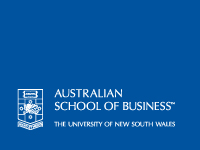|
||||||||||||||||||||||||||||||||||||||||||||||||||||||||
| Economics/Social Science - 3528 | ||||||||||||||||||||||||||||||||||||||||||||||||||||||||

This Program is no longer accepting new enrolments
The Australian School of Business in conjunction with the Faculty of Arts and Social Sciences offers the combined Bachelor of Economics/Bachelor of Social Science (BEc/BSocSc).
This is a five year program combining the strengths and flexibility of each single degree program. It is expected that these combined programs will appeal to students wanting, in particular, a strong, focused and highly regarded business course that is complemented by a program of study in social research and policy analysis. With approval, students with an excellent academic record may also enrol in an additional Honours year in the Bachelor of Economics or Bachelor of Social Science degree. Program Objectives and Learning Outcomes Bachelor of Economics
The objectives of the Bachelor of Economics are:
Bachelor of Social Sciences
The Bachelor of Social Science core program aims to provide students with skills in undertaking social research, particularly in an applied policy setting. These include written communication skills with particular emphasis on reports, submissions, position papers and proposals; the ability to undertake research and data analysis, both quantitative and qualitative; analysis and critical evaluation of research, arguments and policies; and the use of computers in social research and information processing. The major study aims to equip students with a knowledge base in one of the social sciences. The Bachelor of Economics/Bachelor of Social Science program is a five year (240 units of credit) degree program consisting of 22 Business courses (132 units of credit) and 18 Arts and Social Sciences courses (108 units of credit) including 8 which must be in Social Science and Policy. Students will typically enrol in 48 units of credit per year.
These units will be made up of: 9 Core Courses of 54 units of credit (UOC)
AND
Completion of at least 48 units of credit in Economics, Econometrics, Financial Economics or Economic History.
OR
Completion of at least 84 units of credit, consisting of 42 units of credit from each of two approved disciplinary streams in the Australian School of Business. Students are unable to take a modern language as a major stream.
The remaining Business course or credit requirements not required for a major sequence and not Year 1 core courses, as prescribed, if any, may be chosen from any other courses offered by the Australian School of Business. AND
Completion of at least 48 units of credit in an approved disciplinary stream in one of the approved disciplinary streams in the Faculty of Arts and Social Science, including (in total) at least 36 units of credit from Social Science and Policy in the approved sequence as outlined in rules for the Bachelor of Social Science degree.
The remaining course or credit requirements not required for a major sequence and not Year 1 core courses, as prescribed, if any, may be chosen from any other courses offered by the Faculty of Arts and Social Science. Typically this would involve students enrolling in 4 Business courses (24 units of credit) and 4 Arts and Social Sciences courses (24 units of credit) each year. Honours level study is available. Students interested in studying at Honours Level should refer to the relevant Honours plan record for entry requirements.
Honours in Social Science Students wishing to take the Bachelor of Social Science at Honours level must consult the Head of School of Social Sciences and International Studies. Rules relating to the award of the degree of Bachelor of Economics shall apply wherever relevant.
Students are advised to consult the Academic Rules for further information. For information regarding fees for UNSW programs, please refer to the following website: https://my.unsw.edu.au/student/fees/FeesMainPage.html
For further information, refer to the Professional Recognition of Programs in the Online Handbook.
Please note that these requirements may be subject to change.
Students are advised to follow requirements according to the year they commenced. Please refer to previous editions of the Online Handbook for your program requirements. Contact the Australian School of Business Student Centre for advice. tel: + 61 2 9385 3189 location: Ground Floor, West Wing, Australian School of Business Building Forms, policies and procedures Frequently asked questions Faculty of Arts and Social Sciences e-mail: arts@unsw.edu.au tel: + 61 2 9385 2289 location: Room G1, Ground Floor, Morven Brown Building Area(s) of Specialisation |
||||||||||||||||||||||||||||||||||||||||||||||||||||||||


